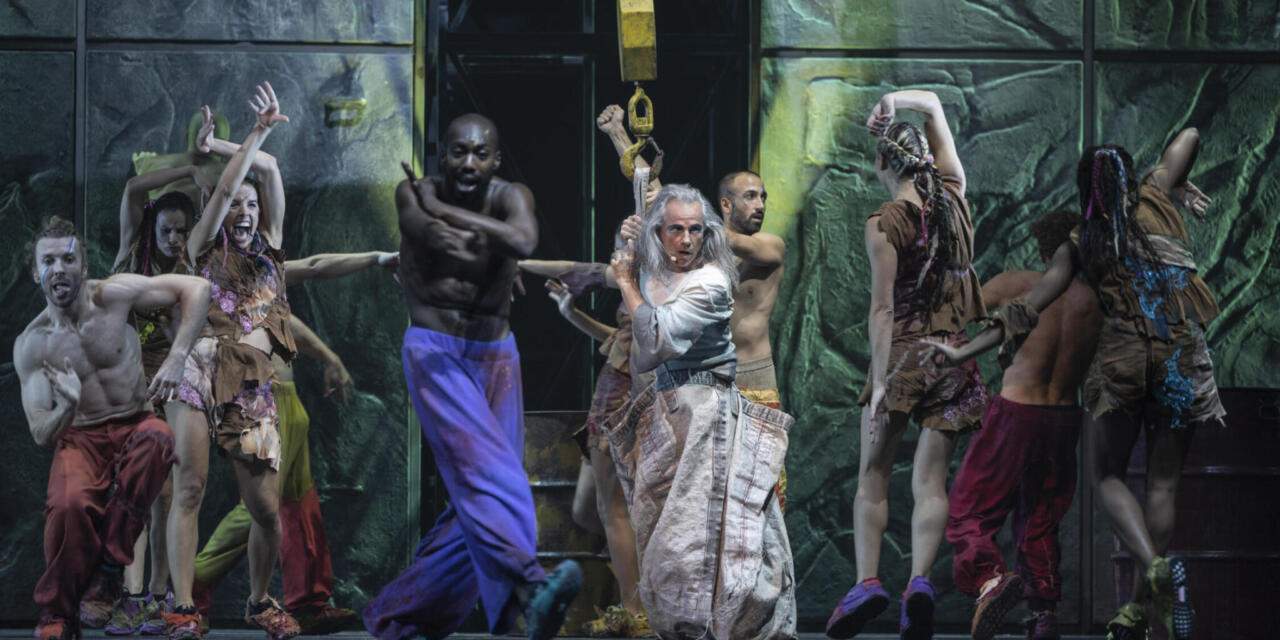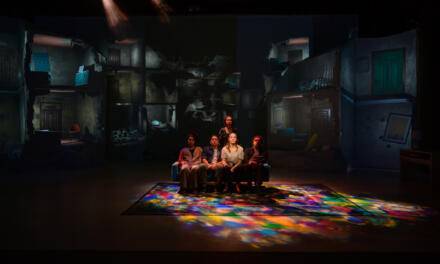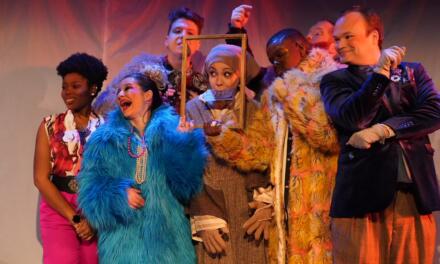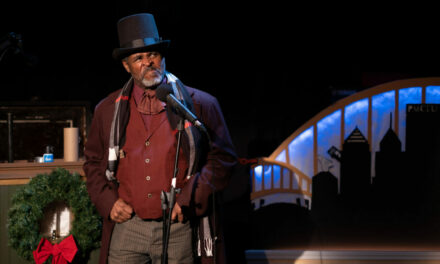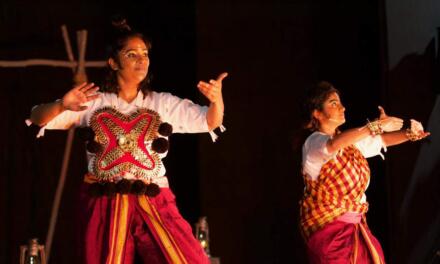Interview of the “original” Gringoire from Notre Dame de Paris the musical – Bruno Pelletier with Lisa Monde, August 5th 2022
This past August Bruno Pelletier – the “Golden voice of Canada”, the very first and original Gringoire of the musical Notre Dame de Paris, celebrated his 60th anniversary. In summer 2022 Notre Dame de Paris came to NYC, to the Lincoln Center and the spectators were able to enjoy the famous show for several weeks… That is how the new tour of this old musical began. In Canada, the spectators were lucky to witness Bruno Pelletier perform the part of the poet Pierre Gringoire once again. Just like Daniel Lavoie, who graced the stage of the Lincoln Center, Bruno returned to Notre Dame de Paris 24 years later… In this interview, Bruno shares how his character of Gringoire became more mature, what new qualities he acquired, how the original production of the musical was different from the subsequent productions.
Lisa Monde: Notre Dame de Paris came to New York City, to the Lincoln Center and I went to see it. I was so excited because I remember seeing it for the first time in 2000, 22 years ago.
Bruno Pelletier: Was it me at the time in the show?
LM: It was you, yes. I saw you in the London production back then. And I have to say, I missed you very much here in New York this time around.
BP: Unfortunately, due to some prior work commitments, I was not able to travel to New York and perform there.
LM: I missed you, Bruno. I enjoyed the show and the cast was wonderful, but I was watching the actor who was playing Gringoire, Gian Marco Schiaretti, and thinking to myself ‘I wish it was Bruno Pelletier on stage in front of me right now’, because you are the best Gringoire there ever was and nobody can compare.
BP: Thank you very much. I’m touched, it means a lot for you to say that. But you know, I think the new cast is amazing and I have huge respect for my colleague – Gian Marco. I think it was his first time playing the role of Gringoire. So we have to let him take his own steps, you know. He’s got so much talent. He is doing a lot of musical theater in Europe – Germany, France, Italy. He is a great singer, a good guy. I like him a lot. I’m flattered by what you said but at the same time I feel a bit uneasy, because of the friendship that I have with my new friend, he is like a little brother to me really. He is 35 years old, that’s exactly the age I was at when I created the role of Gringoire, in 1998. And now I’m doing the show once again in Canada!
LM: I am so excited about that. I saw it online. Literally I was thinking to myself ‘I wish Bruno was here at the Lincoln Center’ and then the next day I am writing the review on the New York premiere of Notre Dame de Paris and I see that you are actually performing in the show now in Canada.
BP: It’s kind of a gift. It’s my birthday on Sunday…
LM: I know that and Happy birthday! It’s your anniversary. Tell me, what does this musical mean to you in your life? You’d created amazing characters before Notre Dame de Paris as well, such as in the rock opera La Legende de Jimmy, in your musical Dracula: Entre l’amour et la mort…
BP: I saw the idea of doing the comeback, just a little comeback, in this revival – for 6 weeks in Canada, as a way to thank the people who supported me in my own solo career and me as part of the Notre Dame de Paris cast. Notre Dame de Paris the musical opened a lot of doors for me all around the world and it helped me receive an international recognition. That’s why I said to myself ‘Okay, Bruno, do it again for a couple of weeks…’. But you know what? It’s really hard now. (laughs) It’s really hard.
LM: So, tell me. The show changed from what I remember it being all these years ago and then seeing different productions in various countries. I saw the production in England at the time and then a production in Russia later on. And now I came to see the show in New York and discovered that it had changed: I saw new costumes, new choreography. I don’t know exactly how I felt about it, I’m not sure I was too happy to see those changes because I was so in love with the original. How did you feel about it? How did the show change for you and how did you feel about all of these changes?
BP: For me it was a good experience to return to this character that I have created in a way, in 1998, and approach it now with all of the experience that I have accumulated throughout the years doing other musicals and performing my own stuff. I think that my new Gringoire is a bit different. He’s got the same energy – I try! To keep the same energy. But he’s more theatrical. It’s just the experience that did it, truly. I’m on stage with Daniel, who’s playing Frollo and we talked about this yesterday, actually. It’s amazing how much more connected we are on stage now, how we play off of each other, it’s like an acting ping pong game, you know? It’s just a little something that we have going on now. There is a certain connection in the way that we play and it’s different from how it was 20 years ago. The experience is there and I feel it now a lot more. But at that time, I was more of a “clown”, kind of, Gringoire was a poet, a bit airy and “stupid, foolish”. Now he’s more calm and experienced. And there is a lot of unity with the public. There’s more interaction between the public and us on stage. A lot more. And it’s a huge difference.
LM: I have to say, I have definitely noticed that. I was hoping you were going to say that. When I watched Daniel on stage I remembered how he performed all these years ago in the original production and how many more details were in his performance this time. And of course, there’s a different connection. Many years have passed, he has accumulated so much knowledge, so, of course, it was visible in his performance. And I admit, I did go online and I watched a couple of recordings of your performance from August 2nd. Somebody recorded and put it out online, it’s on YouTube. I saw you singing “Lune” and “Le Temps des Cathedrales” a couple of days ago, from that recording. And I noticed that as well. That there are so many more details in your performance now, many more colors.
BP: Thank you. That’s what we’ve established together with Daniel and … sometimes you have something very good but it’s in the little details, and most of the people don’t see them but all those little details make it excellent. That’s the difference between very good and excellent.
LM: Definitely. Obviously, the character of Gringoire changed somewhat, in the way of performance and technical approach. We’ve already discussed that. But what about the inner Gringoire, how did the character change for you? Now that you are playing Gringoire once again – is it a completely different character for you or not?
BP: No, not completely. He’s just older. It’s the same guy, but he’s older. He is different, but the same. It’s like in real life, you know? We are the same, but… somehow different. We are changing, we are learning… But we are the same, essentially. So, it’s exactly that when it comes to my Gringoire. I was thinking even before the rehearsals began: ‘What will I do when I’m on stage?’. I started the process of preparation 4-5 months ago. I worked at home a lot, in my studio. And all of a sudden I realized ‘Hey, it’s like in real life. It’s the same guy but he has just learned a lot of things and he is more calm and wise now, he knows…’ He knows a couple of things that the others don’t, he knows what Frollo’s game is all about. That’s the way we play it together – Daniel and I, now, it wasn’t there at the time. And it’s really interesting. Like I said, it’s all in the details.
LM: So how was it for you and Daniel? You were the only returning cast members from the original cast of the show. And then you had so many other performers joining the show for the first time. Well… I shouldn’t say “for the first time”, because many performers like Angelo Del Vecchio and Gian Marco Schiaretti have done the show before. But how did you, as the original cast members feel about the new cast members coming in and their approach? How was the dynamic in the cast?
BP: Maybe I will surprise you, but I was very shy to arrive in a new family. Because they’ve been sticking together for a couple of years now – 5 or 6 years. Angelo has been in the show for 11 years. So, I was a bit afraid, I didn’t want to arrive into that family and be like: ‘Alright, I’m the old Gringoire’. I’m not like that, you know? I was very delicate and I took my place very slowly and I realized that they were shy too. (laughs) Everybody was shy. The youngest were like ‘Oh, it’s Bruno, it’s the one who created Gringoire’ and they wanted to respect me, since I didn’t have a lot of time to rehearse, you know? Because the trucks were stuck at the border so instead of all the time that I was supposed to have, working with the dancers and the light and spacing and everything – I had two hours before the show. I originally was supposed to have two days of rehearsals. But due to these circumstances, the way I started the tour was very rough. All of my colleagues were very respectful and they gave me my space, and at the same time they were shy … But after 2-3 days we felt more comfortable, we began to talk to each other and we began to exchange thoughts… and I said to them that I was so happy to see such a good cast, because they’re amazing, they are good singers. Angelo is super great, Gian Marco is a great singer, Elhaida, Jaime, Jay – it’s a good cast. So, I was very happy to come back with my friend Daniel and to see these young singers with so much talent. As for them, they were very excited at the beginning to meet the old Gringoire, “the first one”. But we have to break those barriers and be colleagues and be at war together. That’s how I feel about it. It’s like I’m an old-timer – ok, but you are young and we are in this together and we have to win together. It’s not a matter of who’s more experienced… No, we are together and let’s work together. So, after 3 days it was all ok and everybody was happy together and even me, I was shy to go back and join this big family, you know? We were all in the same boat eventually.
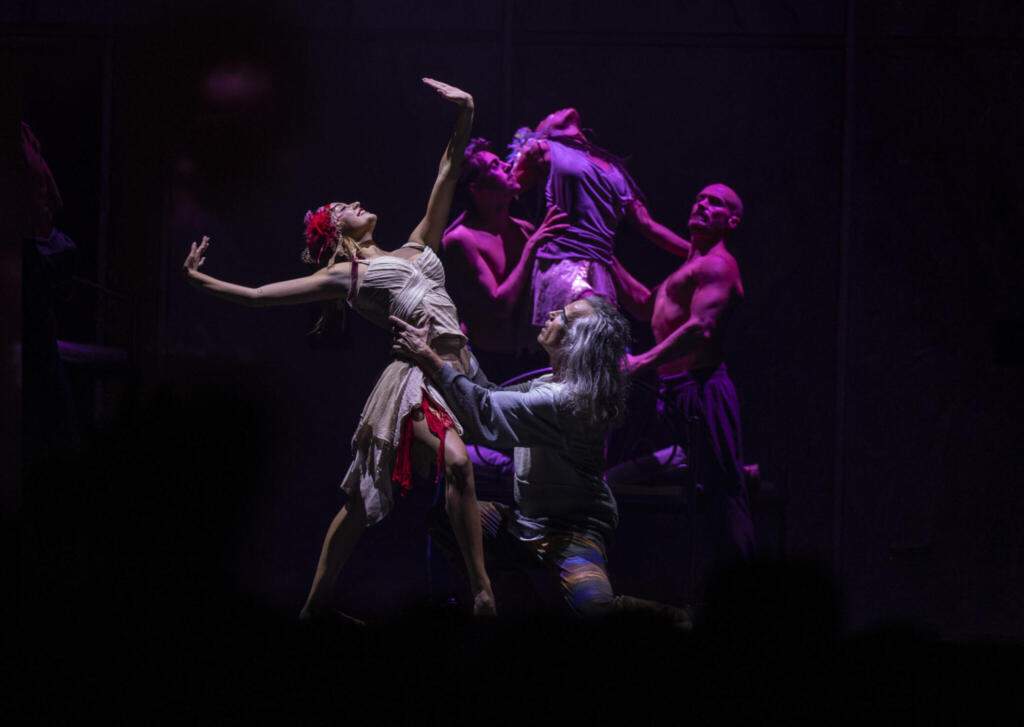
PC: Dale Preston. Courtesy of Mario Lefebvre.
LM: Interesting. Well, how about the other performer, Gian Marco? Did he come to you for advice, did he ask you to give him some ideas about the character and ask for you to tutor him or not really? He was just doing his own thing, his own Gringoire and you were doing your own thing?
BP: Gian Marco and Angelo, both of them, came to me and told me that they were very honored to be on stage with me and I was flattered. But I didn’t want to give them advice, because it’s not my role, not my thing. I just told them a lot of compliments because I think they’re amazing. Gian Marco, who is also playing Gringoire, told me: ‘I will watch you and see if I can catch something that I could use for myself’. And I said, ‘Do as you wish. Me, I will do my thing and I think it’s good to see someone else work, but it’s also good to capture the essence of the character in ourselves, inside of us’. So, we talked about that and even Angelo last night, he was backstage, it was a break for him in performances and his substitute was performing. He told me he was still learning stuff, he was watching everyone work, discovering something new. So, it’s important to admire others and look at them when they are working and see if something is good for us to use. And it’s the same for me. I’m watching them and watching my colleague Gian Marco and we encourage and support each other a lot. And I’m used to it. I’m a big sports guy, I did a lot of sports in my life so I know what it is like to be in a team and want for the team to win. Like a Stanley cup! We want to go out there and win. That’s the way we have to think about it.
LM: Yes. That makes sense.
BP: It’s a business where there is so much competition. So many people are going against one another. I’m not like that myself but I’m a perfectionist. I am, so I work hard. Ever since I was young. In my career – nobody gave me my career just like that, I worked a lot. I worked, like they say in English, “I worked my ass off”?
LM: Totally. Yes, that’s how we say it. So how did you feel about those changes that happened in the show like – the costumes, the choreography, the look of the show was a little different. How did you feel about those changes?
BP: It has to be that way. The changes have to happen. It’s not interesting if a show doesn’t evolve after 20 years. I think it’s important to always try to fix things and tighten the show up, work on the lighting design a bit more and so on. Always important to discuss things, hear people out, and evolve the show.
LM: So, I guess you felt excited when the whole idea of bringing Notre Dame back occurred because I’ve read in one of the articles, in an interview, you mentioned that “Gringoire never really left you”.
BP: No, that’s true. Le Temps des Cathedrales and Lune are the two songs that are very important in my own solo career. Because people know me by my solo career in Canada, but in the world, it’s by Notre Dame de Paris. So anywhere I go, I want to sing some songs from Notre Dame de Paris. Le Temps des Cathedrales is a great song and it is being played in Japan, Taiwan, Africa, Russia. Israel. Lebanon. It’s everywhere. There are so many places in the world where they know Le Temps des Cathedrales. Sometimes I’m in another country and people meet me and say “Oh, you’re French?”, I go “No, I’m Canadian, French Canadian, Quebecois”. They respond: “Oh, do you know the song Le Temps des Cathedrales?”. And I go: “I know a bit, I know the guy’”. I don’t say that it’s me. I don’t tell.
LM: Haha, yes “I know that song a little bit…”. Interesting. So, you’ve done other musicals, you’ve played other characters. You’ve done La Legende de Jimmy and Starmania, Notre Dame and Dracula: Entre l’amour et la mort, where we met for the first time. And I saw that you did another show – Les filles de Caleb. So, you’ve played so many big characters, which one would you say was your favorite character to play?
BP: I have two favorites – it’s Dracula and Gringoire. I have to say that Johnny Rockfort was very interesting in Starmania, but I was very young and there are times when I think about that role and I know I would have done it differently now. Gringoire and Dracula are very interesting roles to develop for an artist, because you have to go deep inside yourself. For Dracula, it was a lot of different emotions ranging from good to bad. In French we say “l’ombre and la lumiere” – “shadow and light”. It was really interesting to play that. Close to Jekyll and Hyde, in a way. For Gringoire it’s more complex. He’s funny, he’s intelligent, he has anger, suffering inside, he’s making some statements, it’s really interesting. So those are my two favorite characters. And now I’m very excited to create a new character in Paris – Eliot Ness, in the musical Al Capone. Eliot Ness is a cop and it’s going to be interesting to work with Roberto Alagna. He’s a great tenor, opera singer, and me I’m not an opera singer, so it’s a mix. It’s the first time when something like that is being created. It’s a mix between lyrical, operatic songs, jazzy songs, pop songs. I don’t know if people will like it, but for me as an artist it was really interesting to receive such a proposal. And to have the opportunity to create a new kind of role for me. More theater and good songs by Jean-Felix Lalanne.
LM: Definitely. That’s really great! So what is, now that you’re doing a new show, a new character that you’re creating, what is the show that you would still love to perform in and the character that you would still love to play in your career? That you haven’t played yet.
BP: I don’t know in fact, maybe the character from the musical Chicago, the lawyer – Billy Flynn. But I watched Hamilton recently on Disney Channel. And it was good that I saw it on Disney Channel ‘cause there are so many lyrics. Pop, rap stuff and it’s really hard for me to understand. So, I had the subtitles on and I was amazed by this show. I understood why it won so many Tony Awards and it’s a great show, it’s fantastic. Today we use the word genius for so many things. But in that case – it’s a genius Broadway show. I loved it. And maybe if I had to choose to play something one day… but it’s too hard for me in English. However, that’s the kind of role, those are the characters that are really interesting. And they are so good. Everything is in that show. The performance, it’s funny and at the same time really-really historical and deep. The cast is on top! I don’t know if in French musical theater we have achieved that level. For me they are supreme. They are amazing.
LM: Well, it’s Broadway. It’s hard to outdo Broadway. It’s the top. It’s interesting actually that you’ve mentioned Hamilton because I was also about to ask you about the genres of music in general. You’ve tried yourself in different genres: you’ve been singing pop-rock and rock and lyrical songs, and classical songs, you’ve tried yourself in jazz, blues music at certain point and even folk. So now you would like to try yourself in rap music?
BP: No, not rap. I don’t think I’ll be any good at it. Definitely not as amazing as they are. You know what, it’s not the kind of music that I like to listen to. Very often it’s not the same as what I’m doing. It’s completely different. Like jazz, scatter, when people scat, you know? I’m not able to scat like them, like Duke Ellington or guys like that. So, when I heard them I was completely “Oh my God!”, and that’s what interests me. And it’s the same with Hamilton. But I don’t think that I am able to perform in that style, unfortunately.
LM: It’s not easy. It became very popular, that genre with RnB and rap, in musical theater and especially now on Broadway. There are many shows that are using that, it’s not like Hamilton exactly – when the full show is in that style, but they do bits and pieces with rap music. And it’s not easy, not everybody can do it. A couple of times at the auditions I was asked to rap after I sang a song. And I said “I can’t rap, but I can try”.
BP: Yes, I know my limits. Not my thing, but I appreciate it.
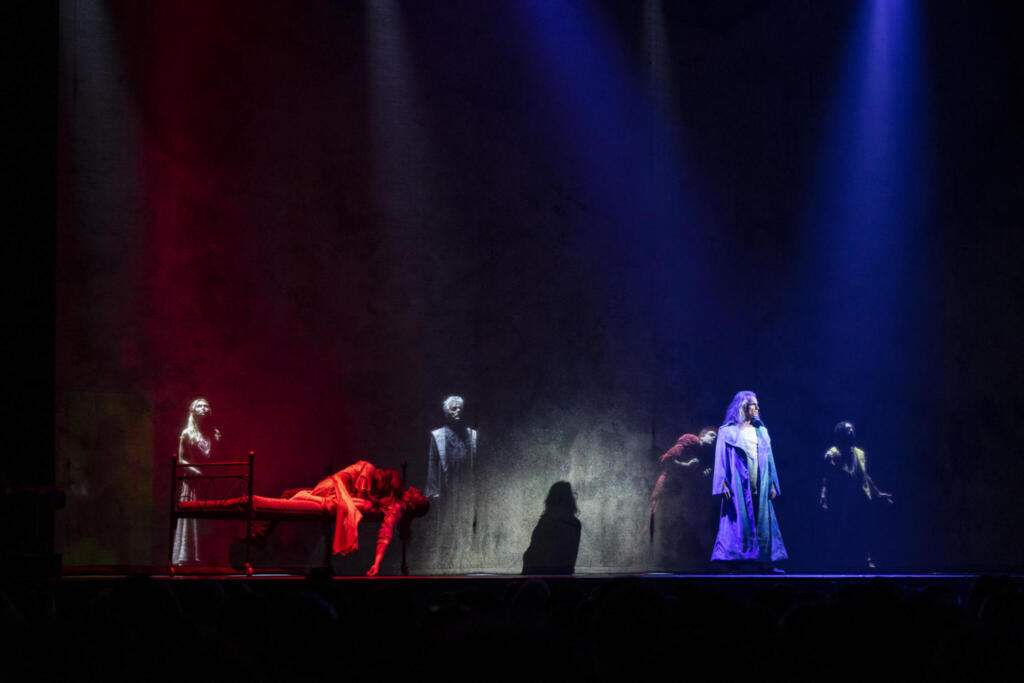
PC: Dale Preston. Courtesy of Mario Lefebvre.
LM: Do you have any plans of coming to the US, coming to New York sometime?
BP: No, I have a couple of fans in the US, but I don’t have a career over there. There are people like you who know me very well. But you know… there was a producer in the beginning of the 2000s, he asked for a special on PBS and we tried to do something. But at the same time, I was developing my career, my solo career in Europe and I passed. And I don’t have the same expectations now. Other singers want to completely conquer the world and it’s weird, but through Notre Dame de Paris I have, in spite of everything, a little international career. So it’s ok, I’m very happy. I’m going to turn 60 years old this weekend and it still feels like a foggy dream to me. Only yesterday I was twelve, playing drums in the basement of my parents’ house and I’m now sixty and I’m still in music and I am a part of that world. It’s incredible. Time flies just like this.
LM: Very true. I mean, there are many milestones for you now: is it 40 years of your creative career?
BP: Yes, 40 years.
LM: And you’re turning 60.
BP: 40 years that I’ve been working in music. 40 years ago, I received my first pay check somewhere and it was for 50 dollars.
LM: So many things happening for you. 60 years old, how do you feel?
BP: I feel blessed. As I told you before, I’m still amazed by the fact that I’m still living my dream. You know, where I come from, it is not possible to be an artist there. Not sure how to say that – but I made it. I think the only regret that I have is that my father was too sick to realize that his own son finally made it. But you know, my mother is still here and she is my biggest fan.
LM: Yes, as moms always are. Same for me. Even though you are turning 60, how old do you feel?
BP: I feel like in my head I’m 35. Really. My energy, the way that I think, the way that I am with my colleagues and everything. I am 35-40. But my body still reminds me that I’m not anymore. Because as I told you I’m a sports guy, I did a lot of sports and on stage I’m very active, but after the show I’m broken and tired. Yesterday I was like, ‘How was I able to do 7 shows a week back then for months?’. And my friends said ‘You were 25 years younger!’. And it’s true, it’s true. Even for the voice. It’s a real challenge now.
LM: How do you keep yourself in shape when it comes to performances?
BP: You know, it’s very boring when I’m on tour. I’m in my hotel room and I don’t speak all day until the show. It’s the only way that I’m able to get through it four days a week. So it’s just a moment this summer, it’s six weeks and for those six weeks I know that my summer is going to be very boring. Because I have to take care of myself, of my voice and take it easy during the day. Not talk a lot. Today I’m taking a break, I’m not performing tonight. So that’s why I agreed to have the interview and wanted to talk to you. It’s hard for people to understand but even just talking throughout the day can affect my voice at night. It’s the same range, the same key, tonality that we had 25 years ago. So it’s very hard for me now to be able to nail it every night. I have to take care of myself and my voice a lot.
LM: So, the idea of bringing the key down, for example – it was not possible?
BP: I asked. But, you know…
LM: You have been performing for so many years, you have accumulated so much knowledge throughout this time, do you teach?
BP: No. Sometimes I coach a bit when someone, sometimes a producer, wants to present a young singer to me, for an audition and they ask if I can coach him or her to prepare them for an audition or something. Sometimes I do that, but I don’t teach. I have a lot to do with my own career, I don’t have time to be a teacher. I’m still not sure I could be a good teacher. It’s like being a boxer. You can have a good guy in the corner, who perhaps never succeeded as a professional but he is a great coach and then you have the boxer who wins. It’s two different things, I think.
LM: But do you see yourself teaching maybe later on?
BP: I don’t know. I think that when I retire as a performer, I will want to just enjoy life and not to work again. I don’t know what’s going to happen. It depends on my voice. I promised myself that when I will hear myself not as I want it to sound – I will stop. For now, it’s not a time to stop.
LM: You’ve been performing, working on your solo career and doing shows. Dracula was that show where you were a creator as well. So, you were kind of on the other side, you were the producer…
BP: I was a producer, creator and the lead, also a co-director. I wore a lot of hats.
LM: I remember. During our interview that we had at the opening night of Dracula: Entre l’amour et la mort/ Dracula: Between Love and Death in Montreal in February 2006, you were excited, but exhausted. I remember you telling me how exhausting and demanding the creative process had been. And that was a very different experience for you, you were on the other side of creating a show. You were stressed out from the amount of work you had to put into that production. Would you like to do that again? Is that something that you see yourself doing again?
BP: No. I promised myself after Dracula that I will never do it again, it’s too hard and it was hard on my health. It was too much. I did it once and I realized that I had reached the top of my level of capacity. I told myself ‘Ok, never do that again. Just focus on your own stuff’. Musicals, full productions are really hard to create and there is a lot of money involved, a lot of pressure. And I was the lead, the main character, I was Dracula. So everything was big. And after that I was burnt out, I was toast for two years. Even though I did like Le GrosZorchestre, jazz music, I think it was a way for me to completely change things up, enjoy music and have fun in little rooms and with less people around. It was a really special time after Dracula for me. I had to find myself again and not just be a producer and artistic director. It was too much pressure and too much weight on my shoulders, too much. But I learned a lot.
LM: So, when it comes to your solo career, I know that you’re doing a couple of concerts for the project Sous Influences.
BP: Yes, Sous Influences was in fact the album that I did before the pandemic and all the shows were recorded. And now I have the Notre Dame shows and my new project – all happening at the same time. It’s special.
LM: You also have a couple of Christmas concerts coming up?
BP: Yes, always, each year. I love that. I didn’t know that I could love singing Christmas music so much. Because I didn’t like Christmas time when I was younger. And I told myself ‘I will never do a Christmas album!’. And all of a sudden, the Symphonic Orchestra of Montreal called me and said: ‘We’d like to do something special with you’. And we did a special concert and my songs were all about peace. So, it was a concert but with songs like Quand Les Hommes Vivront D’amour, Imagine by John Lennon. I wrote a song with Simon Leclerc called Ensemble – Together. And it was all about peace. And, fortunately, this show is popular still and we will celebrate 20 years in 2023 and we will probably do the show again for the anniversary. People come to the Christmas show and they are in good spirits, very often we play in churches… I don’t know, there’s always something so special and magical about it. There’s a mood and it’s only in December.
LM: Bruno, I would like to wish you many more wonderful roles, characters that you’ll create and they will become legendary and turn into classics. I do believe that I will yet again see you play poet Gringoire ten-fifteen years from now.
BP: (laughs) Anything is possible in this life. Never say never… I do believe in miracles!
This post was written by the author in their personal capacity.The opinions expressed in this article are the author’s own and do not reflect the view of The Theatre Times, their staff or collaborators.
This post was written by Lisa Monde.
The views expressed here belong to the author and do not necessarily reflect our views and opinions.

